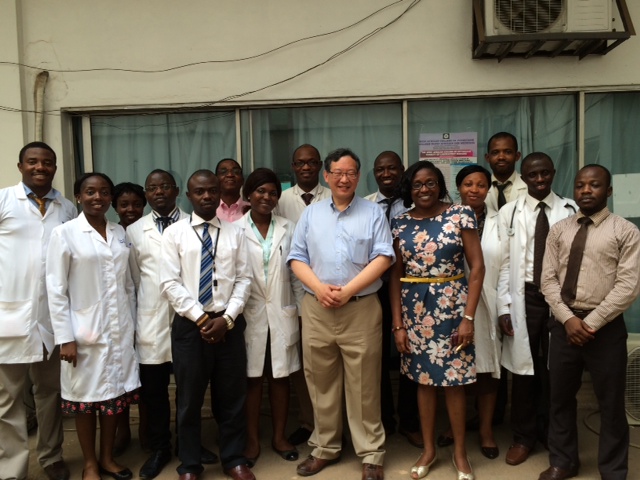Sickle Cell Disease: Overview
Sickle cell disease (SCD) is a descriptive term that covers a range of heritable disorders resulting from genetic mutations to the human hemoglobin (Hb) molecule. The disease encompasses individuals who carry at least one copy of the mutated S globin gene, Hb S. In sickle cell anemia (SCA, SS disease) an individual has inherited both copies of the HbS gene. For those individuals who have one S globin gene and one normal adult Hb gene, the condition is referred to as or “sickle cell trait”. Other forms of SCD are compound heterozygous states in which one copy of the mutation that causes HbS is inherited together with one copy of another abnormal Hb allele (i.e different version of the gene). These compound forms include sickle-Hb disease (HbSC), sickle beta-plus-thalassemia (HbS/?+) and sickle beta-zero-thalassaemia (HbS/?0). The metabolic malfunctions which result from these mutations include the characteristic sickling of red blood cells which in turn cause chronic anemia, stroke, painful crises as a result of infarctions, leg ulcers, renal and other organ failure. Research into the various facets of the disease remains lacking in many African countries. This is especially the case for research which can translate into clinical care strategies and appropriate interventions in the African context. Addressing this research gap in a sustainable manner is the main aim of the AfroSickleNet Project.Read more
______________________________________________________________________________________________________
Who We Are
The AfroSickleNet Project is a network of investigators dedicated to taking up the challenge of addressing Sickle Cell Disease (SCD) in Africa. Through multidisciplinary collaborations focused on the study and treatment of SCD, the network thus includes all genetic defects in hemoglobin (Hb) and red cell function associated with Hb. The project includes investigators from a wide variety of backgrounds including medicine, genetics, statistics and public health, hailing from Canada, the United States and five research centers across the African continent: Kumasi, Ghana; Yaounde, Cameroon, Ibadan, Nigeria; Kisumu, Kenya; and Cape Town, South Africa. |  ASN Drs. Hsu and Akingbola with residents at the University Teaching Hospital Ibadan, Nigeria ASN Drs. Hsu and Akingbola with residents at the University Teaching Hospital Ibadan, Nigeria |
________________________________________________________________________________________________
Project Updates
- ASN members met Tuesday January 27th in a conference call, to discuss project updates and possible new directions for partnerships and collaboration. Also discussed were possible protocols for future grants.
